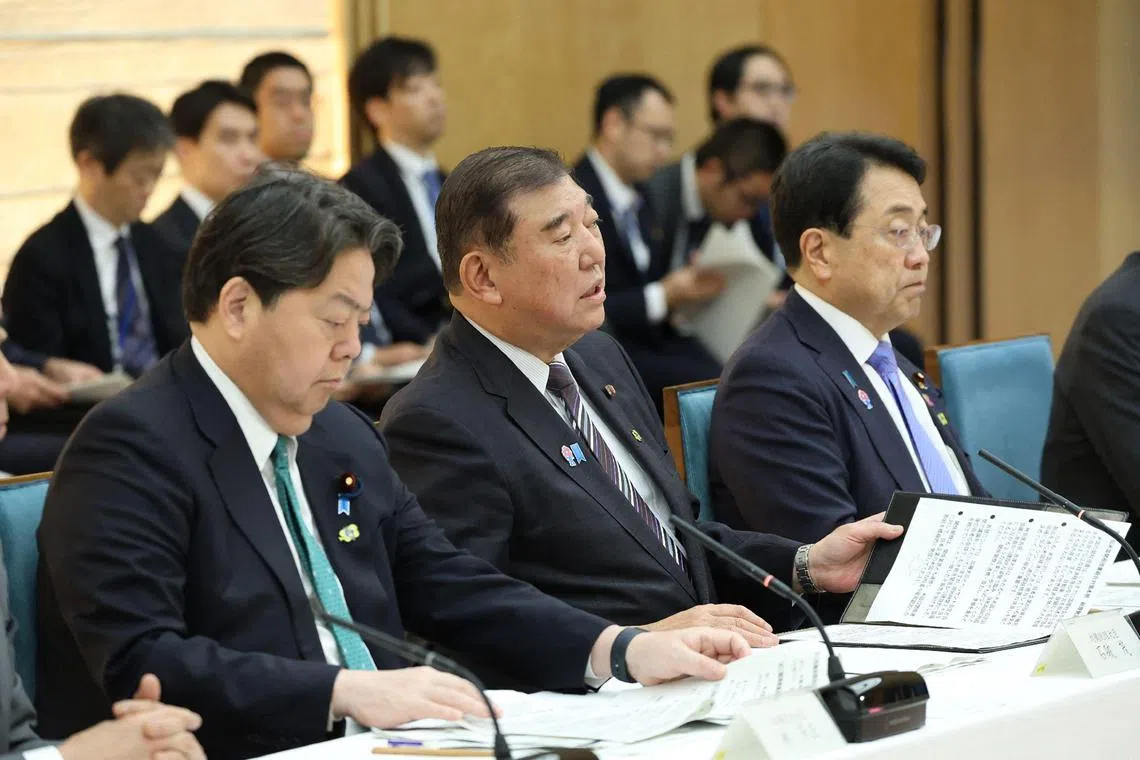Japan PM goes to Vietnam, Philippines to talk tariffs
Sign up now: Get ST's newsletters delivered to your inbox

Japanese Prime Minister Shigeru Ishiba (centre) called South-east Asia a “growth centre” that is driving the world economy.
PHOTO: AFP
Follow topic:
TOKYO - Japanese Prime Minister Shigeru Ishiba left on April 27 for a four-day trip to Vietnam and the Philippines, as Tokyo seeks to shore up regional ties after US President Donald Trump’s tariff onslaught.
Mr Ishiba’s trip comes after China’s President Xi Jinping conducted his own South-east Asia tour, with Beijing trying to position itself as a stable alternative to the US as leaders battle to counter Mr Trump’s tariffs.
Before leaving for the trip, Mr Ishiba called Vietnam and the Philippines – along with the rest of South-east Asia – a “growth centre” that is driving the world economy.
But they face “major impacts” due to Mr Trump’s sweeping tariffs, he said, adding that Japanese businesses operating in the region could also be hit.
“We would like to listen carefully to the opinions and concerns of Japanese companies in the region and make use of that in how we deal with the tariff measures,” he said.
Despite being the biggest investor into the US, Japan has been pinched by steep levies imposed by Mr Trump on imports of cars, steel and aluminium
The country is included in Mr Trump’s blanket 10 per cent levy, although the US leader has paused his “reciprocal” duty of 24 per cent.
Mr Trump also paused “reciprocal” duties of 46 per cent on Vietnam and 49 per cent on Cambodia, where some Japanese companies are thought to have shifted an increasing share of production in recent years, partly to avoid the fallout from the last US-China trade war.
Mr Ishiba is also expected to bring up issues related to China’s growing aggression in the East and South China seas.
Chinese and Japanese patrol vessels in the East China Sea have routinely staged dangerous face-offs around disputed islands.
Vietnam and the Philippines have also seen tense territorial spats in the hotly contested South China Sea with Chinese vessels.
“There are attempts by China to unilaterally change the status quo by force, and we would like to further strengthen our security cooperation” with Hanoi and Manila, Mr Ishiba said. AFP

